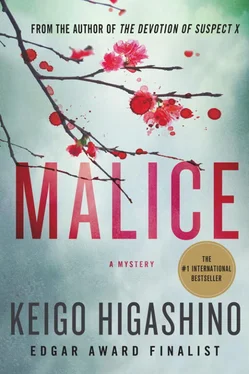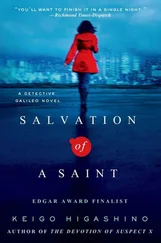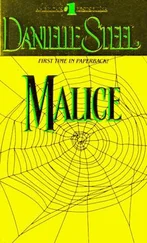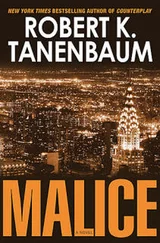Yet their craftiness failed them when it came to math.
The mathematics teacher:
“A student who doesn’t get math in their first or second year won’t suddenly start getting it in their third. I generally know before they take a test which students are going to be able to answer which questions. For example, I know that the final proof on the latest test is beyond Yamaoka’s abilities. But look at his answer: ‘A D E F.’ The correct answer was actually ‘Δ D E F.’ It’s obvious that he looked at someone else’s paper and mistook their delta for an A .”
It was the sort of elegantly convincing argument you’d expect from a mathematician.
Clearly, I had no reason to be optimistic about the situation, but I had to consider my response. School policy was not to punish students for cheating unless a teacher actually caught them in the act. Yet we had a responsibility to let the students know that we’d noticed what was going on. In other words, to give them a warning. So one day after class, I told the students involved to remain behind.
I told them that they were suspected of cheating, then revealed the reason for our suspicion—that they had all made the exact same mistake on their English exam.
“Well, do any of you have anything to say?” I asked.
No one responded. I singled out Yamaoka and asked again.
He shook his head. “I didn’t cheat.”
I then asked each of the other students in turn, and all of them denied cheating.
Lacking proof, I couldn’t do much more. But they were obviously lying.
All five students looked downcast the whole time I was talking to them, but one in particular, Maeno, was red around his eyes by the time I’d finished. Knowing the students and their previous performances, I was pretty sure that his test had been the source for everyone else’s answers. School rules dictated that the one who let his test be copied was just as culpable as those who copied from it.
That night, I received a call from Maeno’s mother. She said her son was acting strangely and wondered if anything had happened at school. I told her about the cheating incident, and I could hear her gasp at the other end of the line.
“I suspect your son was the one who showed the others his answers, which unfortunately still counts as cheating. However, because we lack proof of cheating, there won’t be any punishment this time. I just gave all five of them a warning. Did your son seem shocked?”
“He came home with his clothes all muddy,” she said with tears in her voice. “And now he’s locked himself in his room and won’t come out. However, I caught a glimpse of his face and it was all swollen, Mr. Kaga. I think he was injured and he might have been bleeding.”
The following day, Maeno was out sick. When he came in the day after, he had an eye patch over one eye. The bruises and swelling made it clear someone had beaten him up. I had an idea who.
At this point I finally understood that Maeno wasn’t a friend of the students who’d cheated off his test. They’d coerced him into giving them his answers on the test, then pummeled him as punishment for making a mistake that gave them away. At the time, I didn’t know whether the bullying had started before the cheating or not.
Soon after this incident, summer vacation started, and the timing couldn’t have been worse. Just when I’d opened my eyes to what was going on in my class, they drifted out of my sight. I suppose I could have reached out to them over vacation, but I didn’t. I was busy. I had to do a lot of work to help all of my students get into the right high schools in the next half year. I had school pamphlets to gather, and a mountain of recommendations and forms to fill out. But this is just an excuse. Yamaoka and his buddies extorted and stole over a hundred thousand yen—which is a huge amount for a schoolboy—from Maeno over the summer. Even worse than that, the tangled web of power and coercion between them grew ever stronger and more complex. I didn’t learn about this until sometime later.
At the beginning of the second semester I became aware, both from a sudden drop in Maeno’s grades and because some concerned students confided in me, that the bullying was getting worse, was happening daily. But how bad, I couldn’t have imagined. I found out later that Maeno’s hair had hid no fewer than six cigarette burns on his scalp.
Some of my colleagues thought that, since the students were about to graduate and go their separate ways, it was best to ignore bullying in the senior class. In other words, let graduation solve the problem. But I didn’t feel this was an option. I was still relatively new as a teacher and it was the first year I had a senior class assigned to me for homeroom. I didn’t want any of my students to regret having been assigned to my class.
I decided to talk to Maeno first. I wanted to find out how the bullying had started, and what had happened so far.
He refused to talk. Clearly, he was worried that if he did, the bullying would only escalate. From the sweat running down his brow and the trembling in his fingers, I could plainly see the boy was terrified.
I decided the thing to do was to try to improve his self-confidence. My first idea was kendo. I was in charge of the kendo club at school, and I’d seen many timid young boys take up the sport and transform before my eyes.
As it was a bit late in the year for him to join the kendo club officially, I offered him private lessons in the mornings before school. Though he didn’t seem particularly eager, he showed up for those lessons every morning. Maeno was smart enough to realize what I was trying to do.
He took to kendo fairly well, but showed a far keener interest in something else: knife throwing.
I had taken up the practice of knife throwing as a way to help develop focus. The idea is simple enough: throw a knife at a tatami against the wall and try to make it stick. I sometimes threw with my eyes shut, or even with my back turned to the mat. I found that doing this well required absolute concentration—being aware of everything around me, yet maintaining an intense focus on the knife, on its balance, and on the target. To avoid accidents, I always practiced before anyone else showed up at the gym; but Maeno came early one day and saw me. He told me he wanted to try it, too. It was against school rules, letting a student carry or handle an edged weapon such as a knife or sword, so I had to refuse. But I did let him watch me practice. He would stand a safe distance away, a serious look on his face as he studied my movements.
Once he asked me what the trick to it was.
“You just have to believe you can do it,” I told him.
Not long after that, Yamaoka, the ringleader of the bullies, was admitted to the hospital for appendicitis. Since I didn’t subscribe to the passive route—letting the bullying die out by itself—I saw this as the perfect opportunity to rid Maeno of his feelings of inferiority to Yamaoka.
I told Maeno to copy his class notes and bring them to the hospital every day. With tears in his eyes, he tried to refuse, but I wouldn’t hear it. I didn’t want to let him graduate feeling like a loser.
I’m not sure what transpired at the hospital. Maeno may silently have put the notes on Yamaoka’s bed and left. Maybe the two boys didn’t even see each other. I didn’t care. As far as I was concerned, as long as Yamaoka felt indebted to Maeno, and Maeno felt empowered, that was good enough.
Shortly after Yamaoka got out of the hospital, I got the confirmation I was looking for that everything was going as I’d planned. I casually asked a few of my students about the state of affairs between Maeno and the gang, and they revealed that the bullying had stopped. Of course the other kids might’ve been lying, but Maeno was clearly much happier than before, so I decided that things had resolved themselves.
Читать дальше







